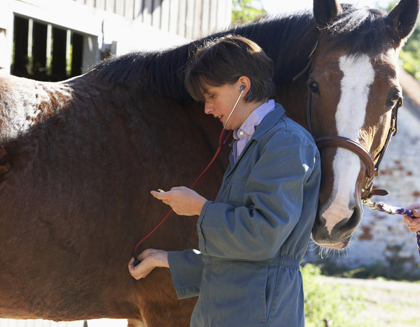Media
IFAH-Europe’s first reaction on Commission’s draft proposal to include an article on Antimicrobial Resistance in the SPS Chapter of TTIP Agreement
IFAH-Europe has taken note of the initiative taken by the European Commission to address the subject of antimicrobial resistance (AMR) in the context of the ongoing Transatlantic Trade and Investment Partnership (TTIP) negotiations.
Antimicrobial resistance is an important issue that needs to be addressed by public health and animal health stakeholders, and by policy-makers at both the EU and global level. Antimicrobial resistance is a global problem, in need of a long-term, balanced, and holistic One Health approach.
IFAH-Europe supports the European Commission’s aim to combat antimicrobial resistance in human and animal healthcare, as well as its plans to strengthen international cooperation as a specific action agreed in the EU’s first Action Plan against the rising threats from Antimicrobial Resistance.
The animal health industry welcomes the European Commission’s acknowledgment that the development of new antimicrobials in the veterinary field is difficult and that the best way of ensuring that we are able to retain the effectiveness of existing antimicrobials, and hereby safeguard the health of animals, is by promoting the prudent use of these medicines as well as stimulating the development of innovative new treatments.
There is an increasing concern among veterinarians, farmers and animal carers that aiming for reduction only, may severely impede the welfare of animals deprived of the necessary treatment with potentially life-saving antimicrobials. Furthermore, a focus on reduction in one sector may lead to suboptimal or ineffective treatment which would be counterproductive to control antimicrobial resistance.
The animal health industry actively contributes to the search for alternative solutions to combat AMR. Yet, the development process for these medicines is often hampered by a lack of incentives such as the increasingly anticipated restrictions on their use and the current limitations on the protection of technical documentation which does not offset the large investments, in both time and finances, that need to be made.
In order to ensure consistency, IFAH-Europe recommends that the proposed article seeks to address the issue of antimicrobial resistance by focusing on the responsible use of antimicrobials, and not focus solely on the reduction of the use of antimicrobials.
Moreover, we would also recommend that AMR is taken up in the Agreement’s chapter on regulatory cooperation, so as to ensure that the issue is addressed through the One Health approach.
While the animal health industry fully agrees that antibiotics should never be used to mask poor animal husbandry practices, it must be recognised that in order to save the lives of animals, safeguard their well-being, and ensure the safety of our food chain, antibiotics for animals must continue to be a part of the animal carers’ tool box.
Furthermore, IFAH-Europe recognizes the role of the Transatlantic Task Force on Antimicrobial Resistance (TATFAR). It encourages the to-be-created joint EU-US taskforce to ensure that their approach is fully in line with the efforts of the World Organisation for Animal Health (OIE), which has so far led the global effort on this issue.
IFAH-Europe is a founding member of the European Platform for the Responsible Use of Medicines in Animals (EPRUMA), a stakeholder-led initiative started 10 years ago and which aims to inform and educate stakeholders, policy-makers and the wider public about the responsible use of veterinary medicines. The animal health industry fully adheres to the principle on the use of antibiotics “as little as possible, as much as necessary”. For more information on EPRUMA, please visit: http://www.epruma.eu

